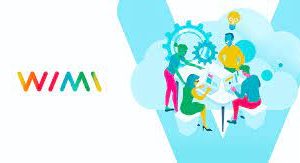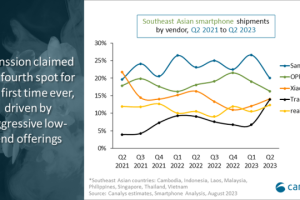Today, being ubiquities it is said and done that ICT, big data, cloud, Internet of things are going to playing quite a wide role in emerging healthcare.
As an effect of the ageing of the population in general, the number of citizens with chronic diseases is increasing, especially among elderly people. This is a great challenge for both the well-being of the citizens and the public health care systems. Health care solutions 
Although basic healthcare technology is widely available on the market, the absorption and adoption of new knowledge and acceptance to use ICT in health care is varying remarkably among citizens and medical professionals. The wider use of ICT in healthcare is a basic condition for the development, implementation and further generation of innovative health care technologies. Therefore social capacity, knowledge and acceptance to utilise health/medical technologies among citizens and medical professionals need to be strengthened.
Problems from the Solution Provider’s end
When experts like Tirupathi Karthik, CEO, Napier, says, “The biggest challenge in healthcare today is acute care facilities like hospitals are over-crowded, especially the good ones and are running to their full capacity. Others have to upgrade their facilities to expand their scope of services. The unfortunate part of the Indian healthcare is that they are majorly concentrated in largest cities. Today, if you take Delhi, Mumbai or Chennai they are comparable to any other developed cities in other countries. But just go down few 100 kms away from them, there is complete different world. The quality of healthcare is very different there. Ensuring consistent healthcare quality across that’s the challenge which Indian healthcare must take. For such instances, telemedicine and other technology driven healthcare is a great cure”. It seems like yes, technology is doing miracle in bridging the gap that patients are getting in healthcare delivery, but still there are people in and around this healthcare society, doctors, nurses, administration, and even patients, who are not ready to accept and adopt this at first hand.
As says, Dr Rajendra Pratap Gupta, Policy Maker and Economic Advisor “ let us accept the fact that the future of health lies in the technology not in the hands of the doctor, It would be fair to say, if doctors don’t appraise the technology, they will be left behind. Healthcare is all clinical, all scientific, and technology can definitely be married to all the clinical evidence and give us support system. So, if the doctors will not braise it, patients will directly use the technology and doctors might become obsolete, it is harsh statement to make but let us be frank to accept that health is only sector which is not touched by technology so far. And now, future lies in the hands of technology”.
The reasons may be many varying from, the traditional mindset of the doctors, rigidity among nurses, lack of knowledge among patients and may be ego factor can be one of them. “If, a year back we are setting around with a good set of 100 customers, spread across the geographies, I would be really happy to continue with that, if I am not aware of where the technology is going. That would have almost generated 30 percent of growth for all of us kind of organizations, which are going on linear growth. Looking at the way, the digital is impacting and the way it is getting adopted, though the adoption rate is very slow say about 17-18 percent, I see that should be a strategy for all of the companies”,said Shirish Kulkarni, CEO, Palash Healthcare Systems Pvt Ltd.
Acceptance of IT in Healthcare
Even if everyone were to have access to basic IC technology, such as mobile phones and personal computers, the use of ICT in health care is not self-evident. The acceptance of eHealth is varying among both citizens and medical professionals. Without general acceptance of eHealth, the continued generation of innovative health care technologies is not possible. Thus the overall objective of the ICT is to persuade citizens with chronic diseases and medical professionals in the partner regions to more readily accept eHealth, and to have the capacity and knowledge to use technologies in prevention and treatment.
Problems from the CIO’s end
While, we are blaming doctors and nurse staff for hampering the growth of technology driven healthcare problems are also occurring from the solution provider’s side. As address, Niranjan Kumar Ramakrishnan, Chief Information Officer, IT, Sir Ganga Ram Hospital, “Personally I have little different approach when it comes to IT automation. I really aspect the IT companies or HIS solution vendor to come up with the proper solutions not like selling the products not running out the promises. IT companies should offer their solutions as a part of their consulting. Unless until there is no specialize person who can help us in getting better know how of the solution, it is a complete waste of money for us. The real return of income comes when we can explore every possibility of end user. So, there I say IT vendors with CIO’s have a major role to play. And IT Company should not sell these as a product but as a solution.
Agreeing with Ramakrishnan, Dr Gupta, also says, Industry is ready to give the solutions. There is a technical maturity which industry has and then there is an organizational maturity which stake holders lack. Now, for every challenge we have multiple technical solutions, but I think as an organizational we are not mature enough to adopt it. We need human resources to bridge this gap of organizational and technical maturity and I think as the time has come, we all need to be ready to accept and adopt it.
Further Dr Gupta added, “Every challenge in healthcare is an opportunity for technology. Be it urban-rural divide, chronic diseases, absence of doctors, any issue you talk about, can be solved by technology. We only need to be more open minded, to deploy the technology in healthcare across the country”.



























